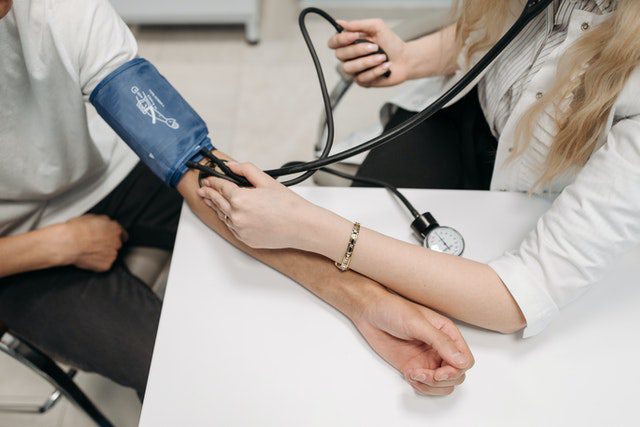We all have at some point, had our blood pressure checked at a regular doctor visit. Many of us however, don’t truly understand the importance of those numbers. Being diagnosed with high blood pressure is a matter of serious health concern, but what really is the significance?
The primary function of the heart is to distribute blood to all parts of the body through the interconnections of arteries for the distribution of nutrients and oxygen.
Because of the distance of the heart from all the other parts of the body, a certain amount of pressure is exerted so blood is able to travel that distance.
The pressure has to be at an optimum level, as too much or too little of it will not only affect the distribution, but may also cause other damages to the body. So what is a good kind of blood pressure and how important is it for you to have it and maintain it?
According to The National Health Service (NHS), the official public healthcare system of the United Kingdom, this is a measure of the force that the heart pumps blood with, to supply the entire body. Good blood pressure is adequate enough to move the supply of blood and its contents to all parts of the body without any collateral damage to the vessels.
How Do You Measure Blood Pressure?
One can measure blood pressure by using an instrument known as a sphygmomanometer. There are two values to look out for when taking blood pressure and these values are the systolic pressure and the diastolic pressure. When the heart pushes blood out, the systolic pressure is generated and when the heart rests in between two heart beats, that is the diastolic pressure.
A sphygmomanometer could either be manual or electronic. The electronic ones are easier for self-use as they can be easily operated by anyone.
Good Values Vs. Bad Values
According to the American Heart Association, normal values of the systolic blood pressure should be between 90 to 120, while that of the diastolic is 60 to 80. For example, if you have a blood pressure reading of 120/80 mmHg, this means that the systolic pressure is 120, while the diastolic pressure would be 80. Blood pressure is considered abnormally high when it falls into the following categories:
- Elevated : systolic pressure 120-129, Diastolic pressure Less than 80
- High Blood Pressure or hypertension stage 1: systolic of 130-139, diastolic of 80-89
- High blood pressure stage 2 : systolic of 140 or higher, diastolic of 90 or higher
- Hypertensive crisis stage : systolic is higher than 180 and/or diastolic is higher than 120.
On the other hand, a less common condition called low blood pressure can occur; this is when pressure falls below the normal values making it difficult for the heart to adequately supply the tissues of the body with enough blood.
This may be caused from factors such as:
- Drug ingestion
- Failure of the heart
- Dehydration
How Do You Maintain Good Blood Pressure?
If you fall within the healthy range, then congratulations! The next step is ensuring that you maintain that range to stay healthy.
Here are some lifestyle steps that may help you:
- Exercise
- Find an activity that is light and gets the blood flowing – make this a regular habit
- Maintain a healthy weight
- Healthy eating
What we eat is an important preventative tool – it can be more efficient than the drugs we take. Food high in unhealthy fat and carbohydrates can lead to unhealthy weight gain. It may also cause clogging of the blood vessels and this increases heart rate and blood pressure. Food high in sodium content is also known for increasing blood pressure.
- Cut down your stress triggers. Psychological and physical stress triggers can affect you. Always make out time for down time, relaxing and for rest
- Go easy on the smoking; in fact quitting smoking can prolong your life in many ways as smoking increases the risk of heart diseases and hypertension
- Reduce alcohol consumption. You may have heard that alcohol, especially red wine, is good for the heart. This is true if alcohol is consumed in moderate quantities. Usually, the beneficial effect of alcohol is received when one drink (12 ounce) is consumed a day for women, and two drinks a day for men. A higher dose than the one specified can negatively affect blood pressure
- Get regular medical checkups. It is very important to always have regular check ups with your doctor
Blood is an important vehicle of transport for the body. It carries nutrients, water, healing cells, hormones , oxygen etc. all around our body. Therefore, it is of great importance to keep levels stable and optimum so that these functions are in no way deterred.
References:





